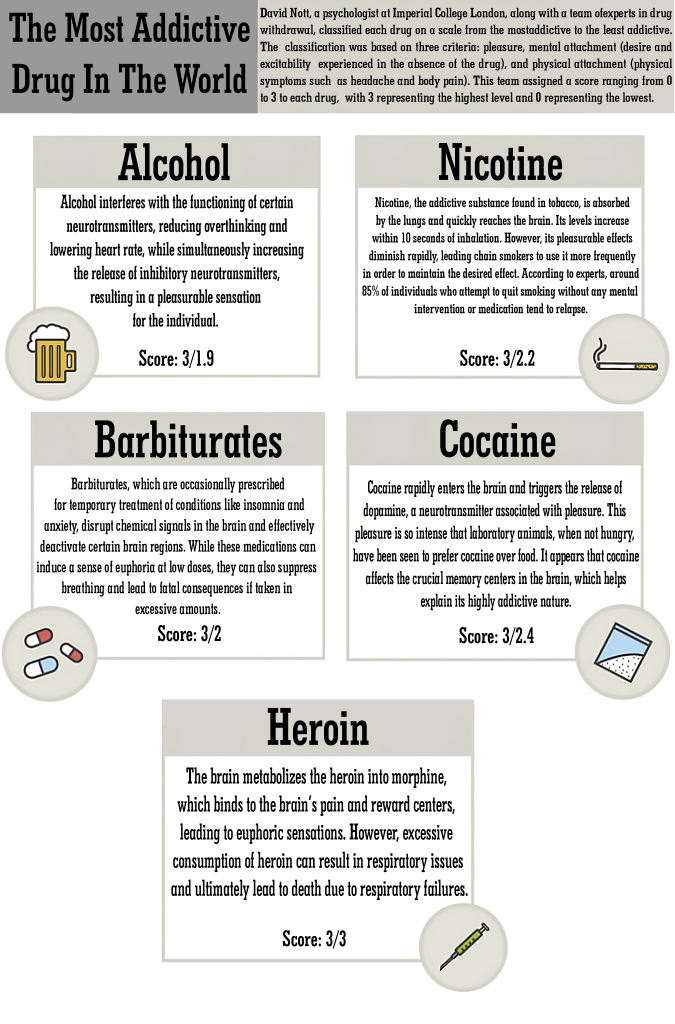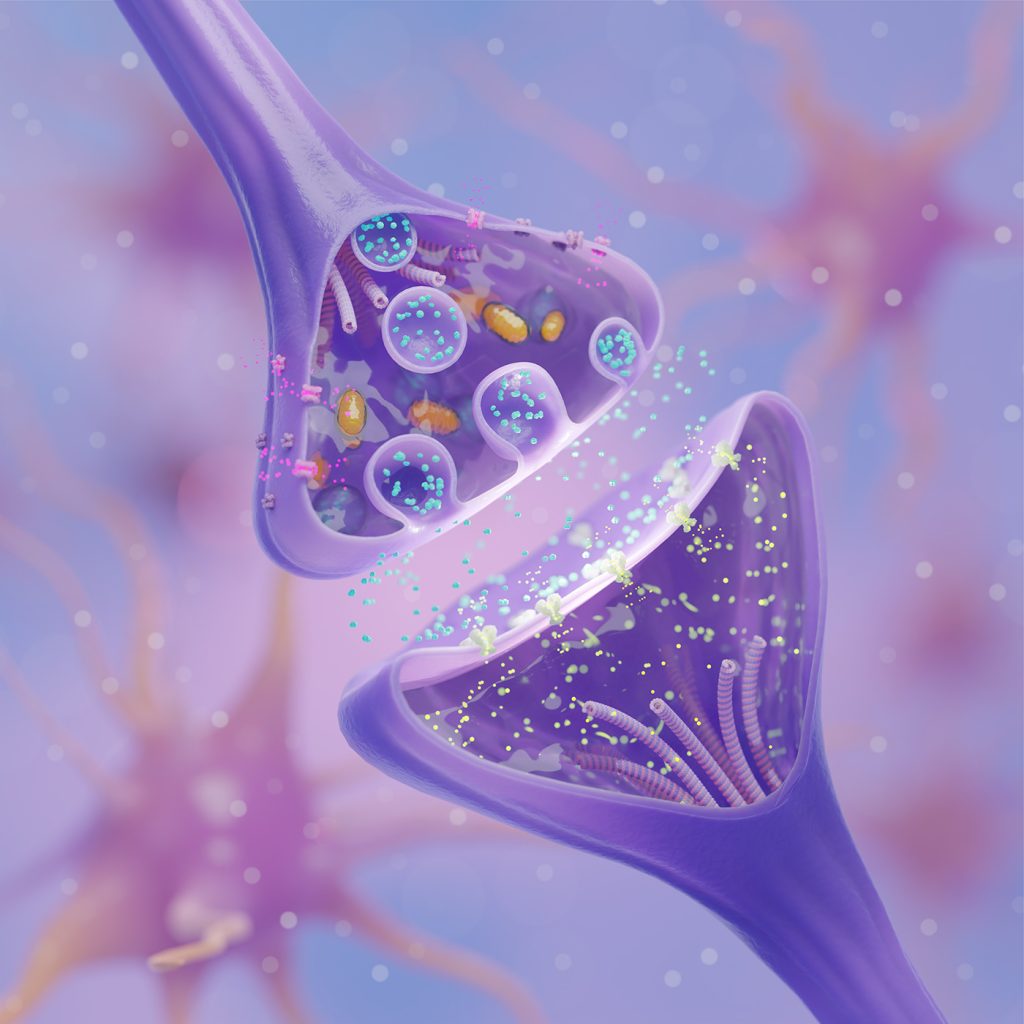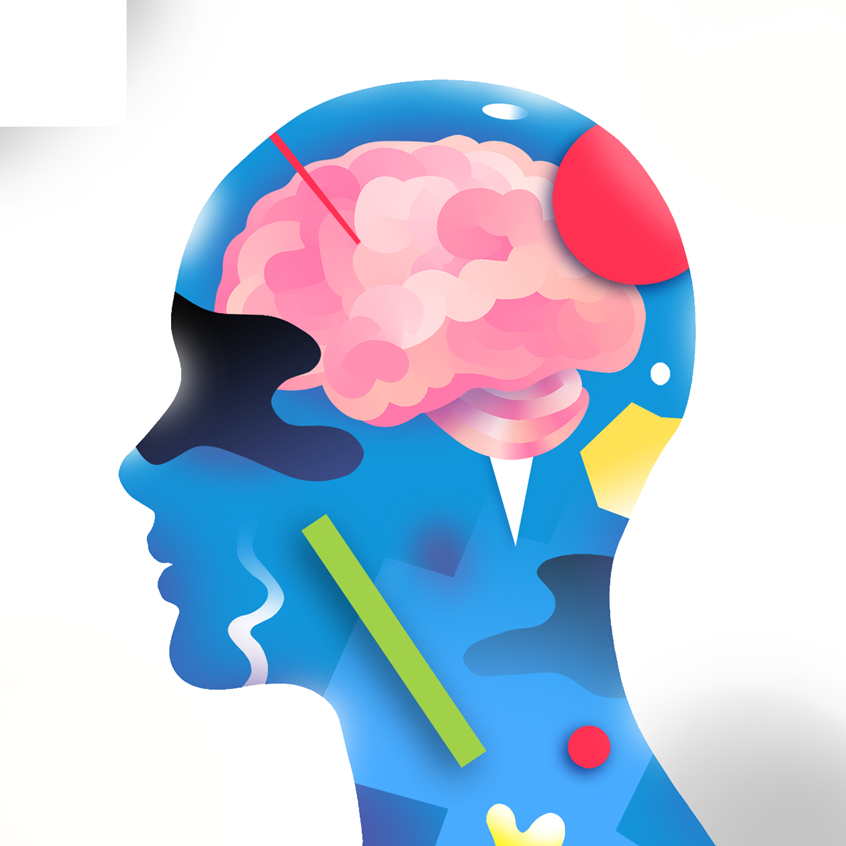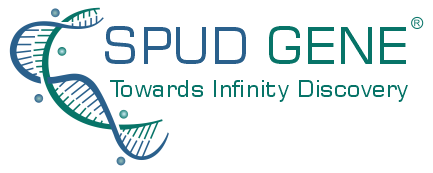

Home » Psychedelice » Therapeutic Effect of Psilocybin in Addiction
Addiction is a complex disorder characterized by a strong mental compulsion to use drugs or engage in certain behaviors despite adverse consequences. It can be considered a chronic brain illness that affects the reward system, motivation, and memory. The pathophysiology of addiction involves several key processes, including the brain’s response to rewarding stimuli, the development of drug resistance, the occurrence of withdrawal syndrome, and the disruption of neural circuit regulation.
The studies on drug withdrawal involving the use of psilocybin are still in the primary stages, and the findings in this field, albeit limited, are promising. These preliminary studies have shown the positive effects of psilocybin in treating various drug addictions, including alcohol, tobacco, and other opioids.
Contents

Psilocybin’s Mechanism in Drug Withdrawal
Psilocybin has garnered attention in recent years due to its therapeutic efficacy. This substance is being studied as an innovative approach to address mental health issues. This article aims to investigate the role of psilocybin in drug withdrawal, emphasizing current research, potential mechanisms, and considerations for its clinical application in drug withdrawal. It is believed that the therapeutic effects of psilocybin in addiction to treatment are attributed to its ability to modulate brain function and induce profound euphoric experiences. Psilocybin interacts with serotonin receptors in the brain, particularly the 5-HT2A receptors, and alters the state of consciousness. These altered states can ease emotional and psychological introspection, enabling individuals to gain insight and self-awareness regarding their addictive behaviors and underlying motivations for drug use. It appears that the therapeutic effect of psilocybin in drug withdrawal extends beyond the individual’s chemical dependence on the drug.

One potential mechanism of action is disrupting ingrained thought patterns and enhancing cognitive flexibility. Psilocybin has the ability to disrupt neural pathways associated with addiction and promote the formation of new synaptic connections. This neuroplasticity may assist individuals in breaking free from entrenched behavioral patterns and adopting new perspectives.
Another significant aspect of psilocybin’s effects is its impact on emotions, which can liberate individuals from internal and mental obsessions. This can aid in the treatment process by helping to alleviate traumas and emotional distress. Psilocybin achieves this by enhancing emotional awareness and empowering individuals to better understand themselves. It provides a therapeutic foundation for individuals to address underlying psychological issues and develop healthier coping mechanisms for dealing with challenges.
In addition, it is believed that psilocybin’s ability to induce mystical experiences can enhance its therapeutic potential. These experiences encompass feelings of unity, transcendence, and interconnectedness, leading to profound shifts in perspectives and a stronger connection to one’s core values and ultimate goals. Such experiences provide individuals with a profound sense of meaning and purpose, ultimately serving as a motivating factor in overcoming addiction.
Analyzing The Articles
A clinical study conducted in JAMA journal in 2020 examined the effects of psilocybin on alcohol use disorder (AUD). This study investigated the impact of two dosages of psilocybin over a period of four weeks, compared to Diphenhydramine, which served as an active placebo used to control symptoms of withdrawal syndrome). The participants in the study were individuals diagnosed with AUD according to the DMS IV criterion, who had experienced four episodes of heavy alcohol consumption (60 grams of alcohol per day). The results of this double-blind clinical trial demonstrated that the administration of psilocybin, in conjunction with psychotherapy, led to a significant and sustained reduction in alcohol consumption among the subjects. Another study conducted at Johns Hopkins University in 2015 examined the effects of psilocybin treatment on individuals with alcohol addiction. The study reported a significant reduction in alcohol consumption and a decreased likelihood of relapse following the administration of psilocybin. Similar results were observed in relation to tobacco addiction, indicating that participants who received psilocybin treatment were able to abstain from tobacco use for an extended period of time.
Legal Considerations
Psilocybin is classified as a Schedule I controlled substance in many countries, including the USA, which is the highest level of control for pharmaceutical substances. However, these classifications do not align with the actual harm and addiction potential of psilocybin. Research has shown promising safety profiles for psilocybin, leading to its decriminalization in some countries and a shift to lower levels of control. For instance, in July 2023, Australia approved the prescription of psilocybin for the treatment of depression. Nonetheless, research and clinical use of psilocybin in most countries still adhere to legally established regulations. Nevertheless, it is anticipated that the coming years will witness increased publicity and acceptance of psilocybin as a therapeutic treatment.
Framework of Addiction Treatment
The psilocybin treatment is not a standalone therapy; rather, it is a component within a comprehensive therapeutic framework. The combination of mystical experiences facilitated by psilocybin and ongoing psychological support is essential for optimizing treatment outcomes and achieving long-lasting improvement.
Individualistic Differences
Addiction is a complex and multifaceted condition, and the response to psilocybin treatment can vary among individuals. Factors such as personal characteristics, past experiences, and cognitive abilities can influence treatment outcomes. Therefore, providing personalized treatment that aligns with each individual’s unique needs and circumstances is crucial for maximizing the effectiveness of psilocybin therapy.
Conclusion
The use of psilocybin in addiction treatment represents an innovative, safe, effective, and promising approach, offering transformative experiences and emotional improvements. While further research is ongoing, initial studies have demonstrated positive results in the treatment of substance use disorders. However, it is crucial that psilocybin treatment be conducted under the guidance of trained professionals and in a controlled and regulated environment. Incorporating ethical, legal, and individual considerations is essential for ensuring responsible and effective use of psilocybin in addiction treatment.



